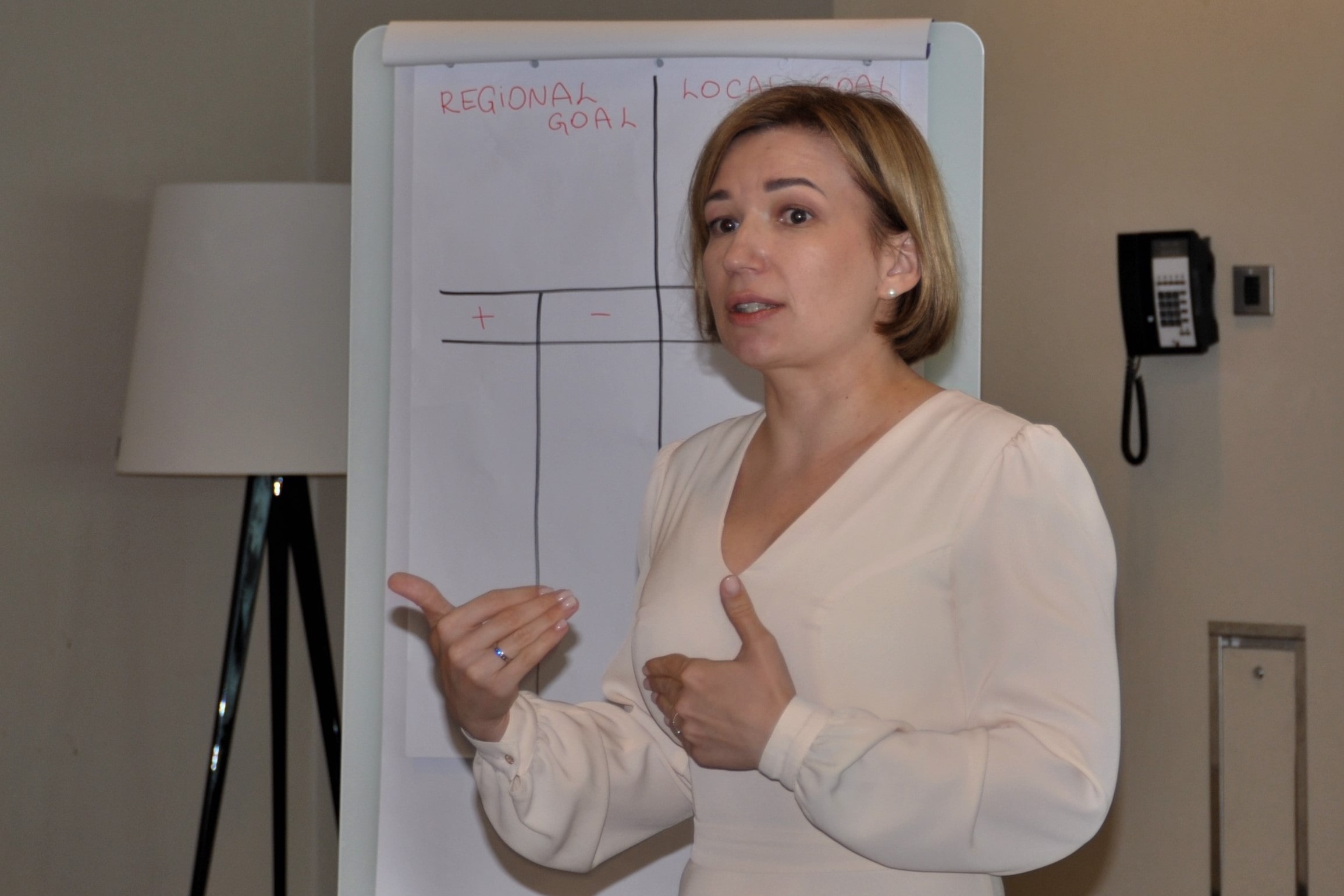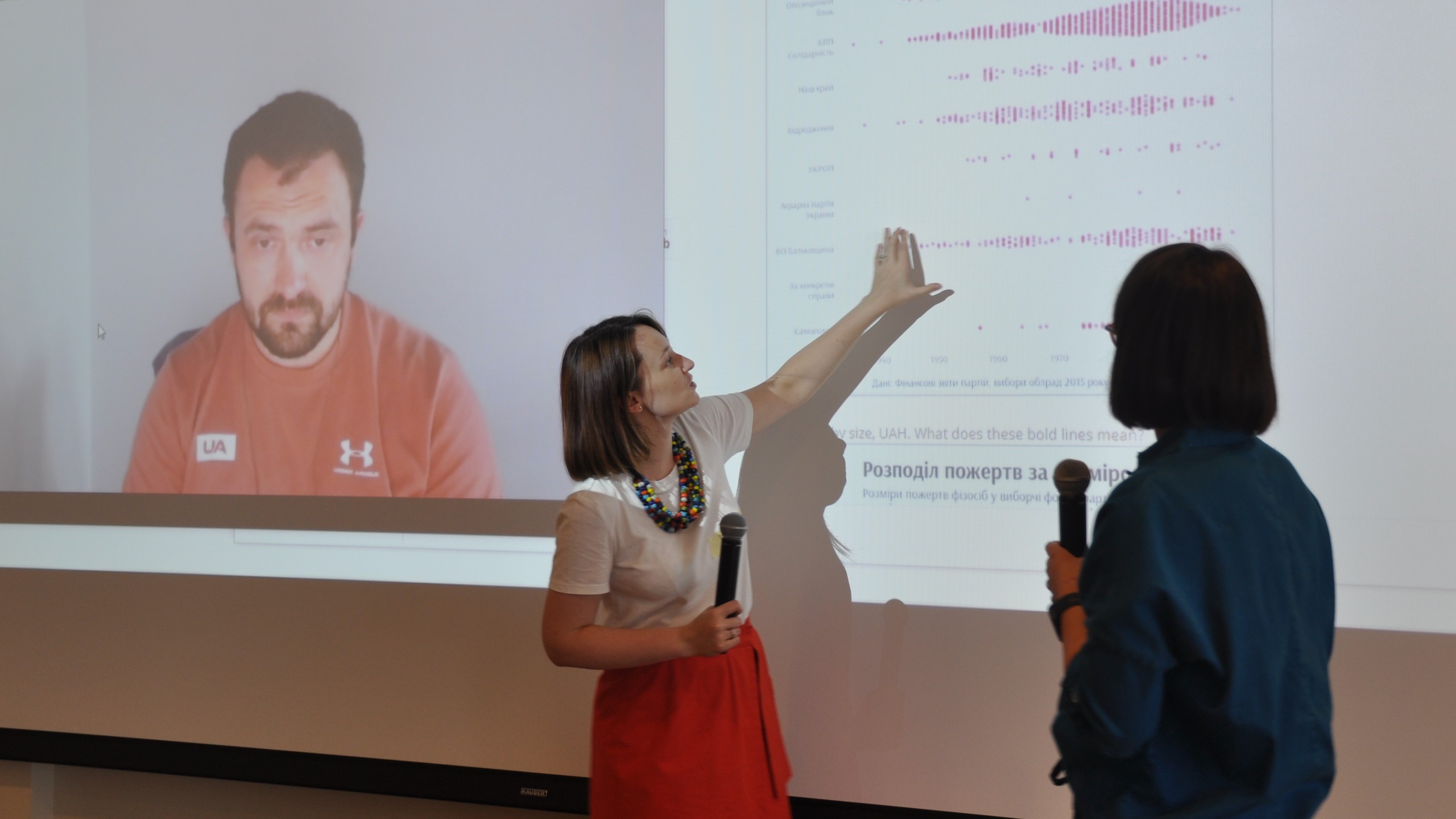During August 1–4, OPORA held the first Open Election Data and Disinformation Academy in Warsaw, participated by the civil society representatives from 11 countries. The event was organized with the support of the National Democratic Institute (NDI).
Theoretical and practical classes took place during the four-day training. How to find, obtain, receive and analyze open election data, identify disinformation and advocate for changes at the state and regional level—these are the topics the participants of the Academy worked on together with the OPORA team and international experts.
Head of Board of Civil Network OPORA Olga Aivazovska says this Academy has become a successful platform for cooperation with organizations like OPORA in different countries. “For us, it is a platform of influence because Ukraine already had a good experience with openness of the different types of data. And now we have to share this experience, especially with the countries that are already the members of the European Union ot those countries wo are going to be its members, like Ukraine. It is another evidence that Ukraine is already very well-developed country in this specific case. At the same time, we can do a self-assessment because of these discussions between participants about the situation in their countries, their experiences, good practices, and so on and so forth. And I believe that we are producing a network for advocacy of openness of information about elections, electoral processes, candidates, finances, and so on, and especially about the results. That is why if we will continue to work on networking, OPORA and other good organizations can collaborate on high level of advocacy, on global level of the European Union and our European neighbor countries,” she said.

In the first two days, participants discussed why open data is important in elections; how to analyze official voting results; how to create a real dataset from Word/PDF documents; how open data contributes to a better understanding of the electoral process; how to use electoral data to propose changes for improving legislation. The participants of the Academy worked with real cases from the practice of the Civil Network OPORA (you can find them here), studied the datasets available in their countries (obtained the following results), and discussed the impact of manipulations that open data reveal on the election process.
Mario Mitre, senior advisor, election and political processes, National Democratic Institute (NDI), believes there are at least two reasons to study open election data. “They have the right to oversee the work of the electoral representatives in their government so that they are paying taxes, they are electing these people, so they want to make sure that they are doing the right thing and that they are doing everything correctly. Sometimes fraud and other electoral manipulations do not happen in the open. Having open election data or open data, in general, helps citizens to dig deep and analyze information, look for everything that does not seem right to do further investigation. It is about both creating the incentives for manipulation, but also about the principle that the citizens should be able to oversee the work of their government and government institutions,” he noted.
The third day of the Academy was devoted to social media monitoring and disinformation both during the election process and political life itself. Anastasiia Romaniuk and Olha Snopok, social media monitoring experts at the Civil Network OPORA, shared their practical experience of using programs that automatically collect data; working with API using Python, R, or manual data processing. For example, they presented an investigation on dissemination of russian disinformation about Bucha and a study of how russian propaganda is shared through the network of state-owned channels sputnik and russia roday.
During the Academy, they participants also talked about the situation with the regulation of the content of social networks in the countries from which they came. Since in most of these countries, Facebook and Instagram are the main platforms for the distribution of content, considerable attention was paid to working with the data of the Library of Political Advertising—Academy participants analyzed them practically. However, in addition to investigating the political funding, the trainers demonstrated that data from the Library can be used to identify coordinated networks and groups of pages that, in particular, disseminate disinformation narratives (for example, this was demonstrated in the OPORA study).
Anton Ivchenko, a participant from Armenia who represents the Helsinki Citizens' Assembly-Vanadzor, notes that some technological solutions work in his country, but not perfectly. "We have machines for registaring voters, but the lists of voters are only for one precinct. So, you cannot vote twice on one precinct, but if you go to the nearest one, it will be totally OK," he said.
The participants from Georgia compared the situation with open election data in their country with an iceberg, where, of course, some part is visible above the surface of the water, but the main massif is located. Nini Gvilia and Sopio Gogitadze, who represent the International Society for Fair Elections and Democracy (ISFED), believe that when you look at the available open data or what civil society organizations can obtain when observing the elections in Georgia, the data is generally fine, but all manipulations take place "underwater", where there is a lot of data, but it is still not open.
The last, fourth day was devoted to issues of advocacy at the regional and global levels. The participants made a list of priority goals they could implement to improve the situation with open election data in their countries.
Head of Board of the Civil Network OPORA Olga Aivazovska summed up, “Advocacy is about the representation of the society needs, or some of the groups of society. That’s why your goals must have some connection with the interests of society to do that. And if your citizens do not know much about the open data, this means that you have to start to aware them why it’s so important or why this tool will help to have free and fair election.”
